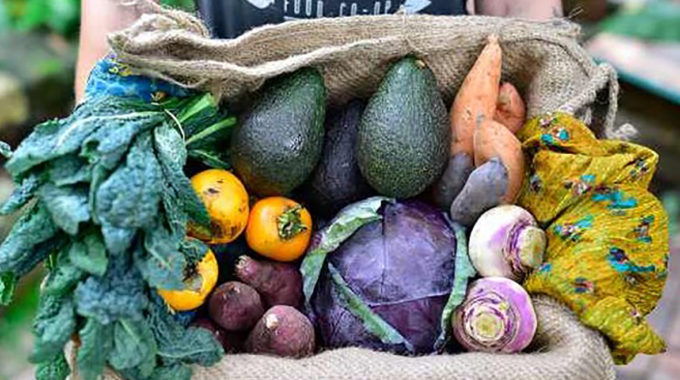Food co-ops: the collective experience
As consumers become more aware of the impact of food production on the environment, many people are choosing to seek out more ethical, localised and sustainable food sources. Supermarkets might be enormous and everywhere, but the buying power and influence of these retail giants means consumers often feel frustrated by the lack of choice on offer and the lack of control they have over what food is made available to them. Many have decided to opt for the fairer, greener alternative: food co-ops.
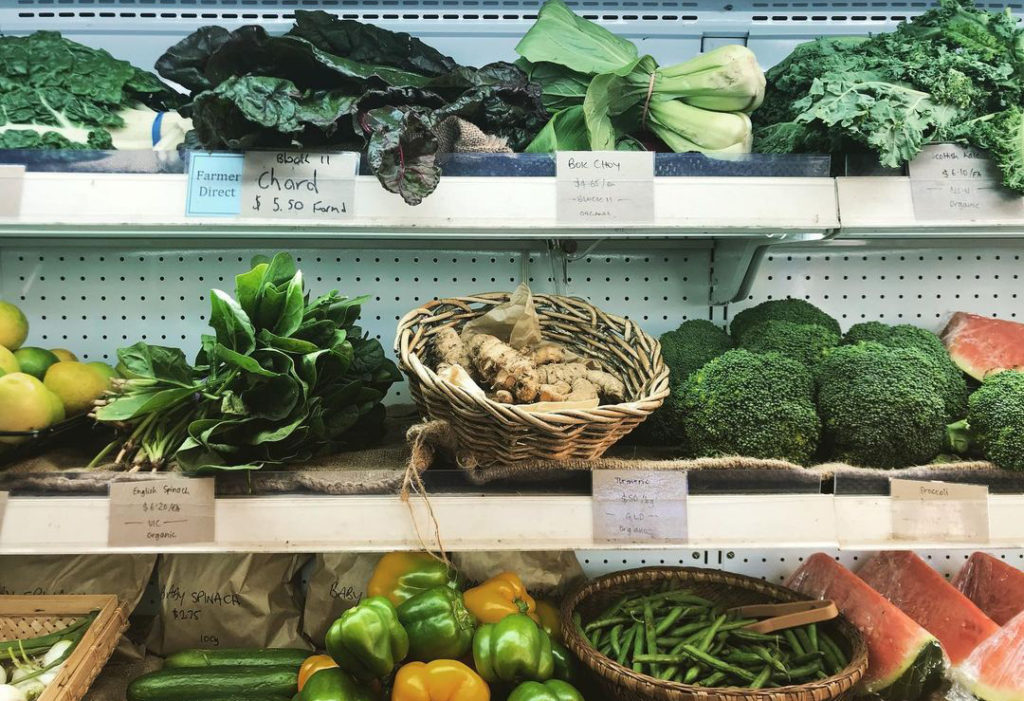
What is a food co-op?
Food co-ops are made up of a group of individuals who’ve decided to get together to form an organisation that buys food in bulk, at wholesale prices. This is usually fresh produce and dry goods but can also include non-edible items such as environmentally friendly cleaning and beauty products. Buying in bulk not only allows co-ops to provide food at a good price; because food co-ops are built on democratic principles and are run by members for members, they have more control over the food they buy and offer for sale.
Further, because the food is bought directly from farmers or wholesalers that share the co-op’s values, this also results in fresher, better quality produce. Bulk buying also allows co-ops to reduce waste and single-use plastic packaging.
“Food co-ops are different to charitable organisations,” says Sandra Clark, a director on the members’ council at Alfalfa House, located in the inner-Sydney suburb of Enmore. “Food co-ops are not for profit, but there are also requirements they must adhere to. This is not just food co-ops. This is also dairy co-ops, fishing co-ops; they all have the same principles, and they must adhere to them to be an authentic co-op.”
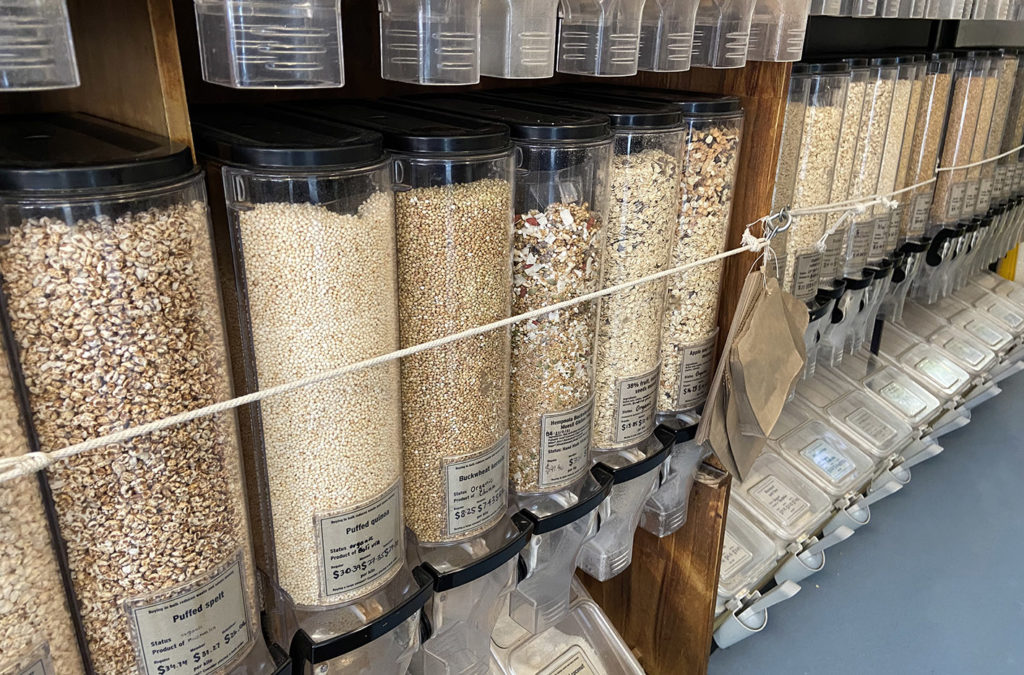
The 7 co-operative principles
1. Open and voluntary membership
Membership in a co-op must be open to all people, regardless of race, religion, gender or economic circumstances. “Anyone can join and anyone can leave at any time,” Clark says.
2. Democratic member control
“Members pay an annual membership fee, and as a member, you have democratic member control,” Clark says. “So everyone gets a say about how the co-op is run.”
3. Members’ economic participation
Members contribute to and jointly control the capital of their co-op. If there’s any excess capital, members get to decide how that money is used.
4. Autonomy and independence
“This is where co-ops are different from any other business,” Clark says. “They’re run in their own right. Even though there are other food co-ops around, each has its own independence. And that’s a good thing. Because you can make change as a member. You can have a say, and you can improve the co-op and feel a sense of achievement.”
5. Education, training and information
Co-ops must offer education and training for members and staff to allow them to contribute to the development of the co-op. “During COVID, this was difficult,” Clark says.
6. Cooperation among cooperatives
“This means that, for example, if I want information from the Blue Mountains Food Co-op about their point-of-sale system, they’re required to share it with us,” Clark says. “We’re not competing; they’re very happy to share that information.”
7. Concern for community
“We’re not just a shop where people come and get a discount,” Clark says. “We look at the community’s needs, and we work out how can we best address those needs.”
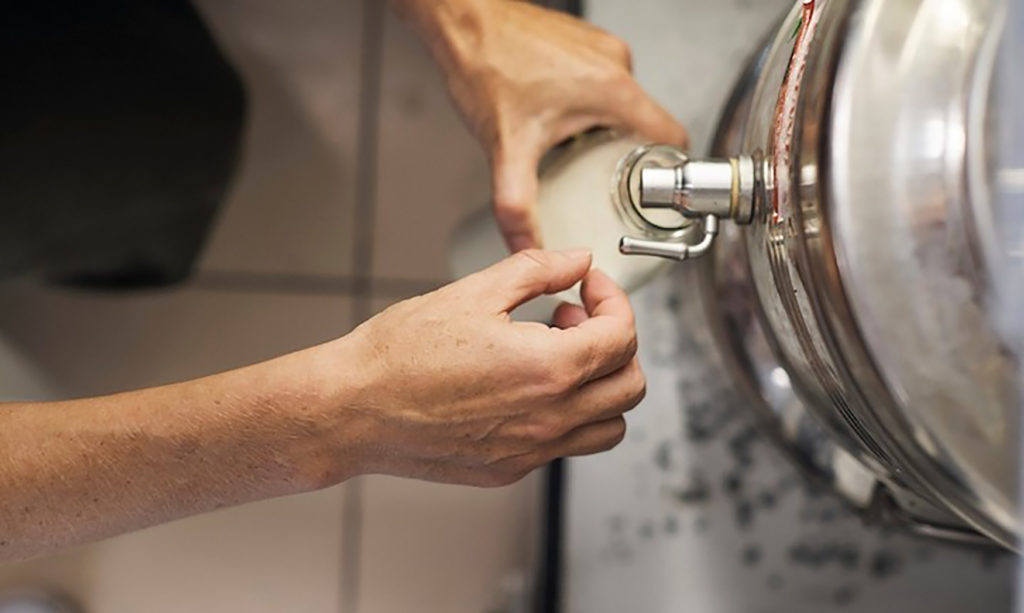
More than just money
Food co-ops aren’t just about saving money, although that is a definite plus. At Alfalfa House, members receive a 10 percent discount on food, and if you volunteer at the store, you receive a further 10 percent discount. But for the majority of members, food co-ops are a place for them to access quality food that’s locally and sustainably produced. And for the planet-conscious, having an option to buy food without excessive packaging in quantities suited to their own individual needs allows them to reduce food waste.
Jannine Graham was a member of Alfalfa House for 10 years. When she moved to Bulli, on NSW’s South Coast, she chose to join the Flame Tree Co-op in nearby Thirroul.
“I choose the food co-op because I can take my own bags and containers,” she says. “So I’m not creating garbage. And because I can buy portion sizes that suit my needs, I’m not creating waste. Also, the food is fresher and more trustworthy. For instance, I’m always a bit hesitant to buy spices from a supermarket, as you don’t really know what’s in them.”
There’s a common misconception that food co-ops are more expensive than supermarkets. But Graham says this isn’t so. However, for most co-op members, saving money on food is not the most important aspect.
“The reason I started going to co-ops was that I didn’t want to give my money to big corporations,” she says. “I don’t want to go to Woolworths. I believe people choose food co-ops because of their ethical nature. Then comes quality, then comes price.”
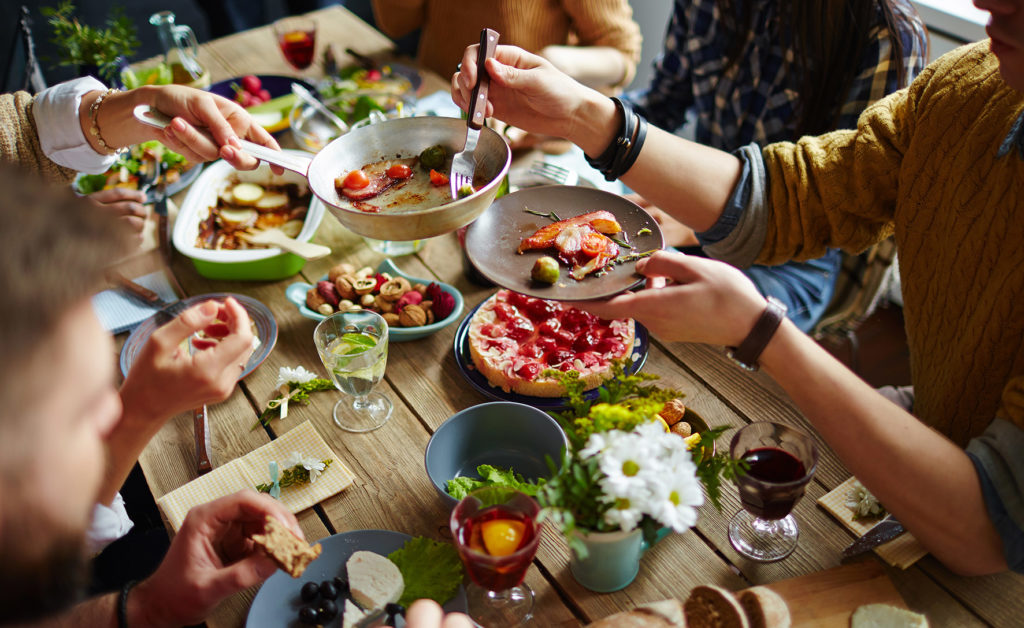
Community connection
At the other end of the spectrum, you can find small groups of people who’ve decided to set up their own kind of food co-op. In Brisbane, The Scratch Bar owner Kieran Ryan created a buyers’ group for his staff and social circle. The Scratch Co-op offers its members a weekly produce box, the contents of which are voted on each week by members via a Messenger chat group.
“For Kieran, it was a way to create community among the staff that worked in the venue,” says Scratch Co-op member Natalie Taylor. “It’s a nice way to bring everyone together on a casual basis to pack some vegie boxes, support farmers and connect with each other.”
While saving money on food is an obvious benefit, Taylor also chose to join the group because of ethical reasons and to feel a sense of community and belonging.
“Reducing plastic and waste is a big thing for me,” she says. “But food co-ops can also really change the way you think about food, like how eating with the seasons is so important. It makes me feel more connected, both to my community and to my food.
“We host seasonal co-op dinners where we use the produce from our weekly boxes. The regular contact makes people feel like they’re constantly connected to this little hub they get their produce from. It’s a means to learn from and connect with each other. And it gives you a new perspective on sourcing and consuming foods.”
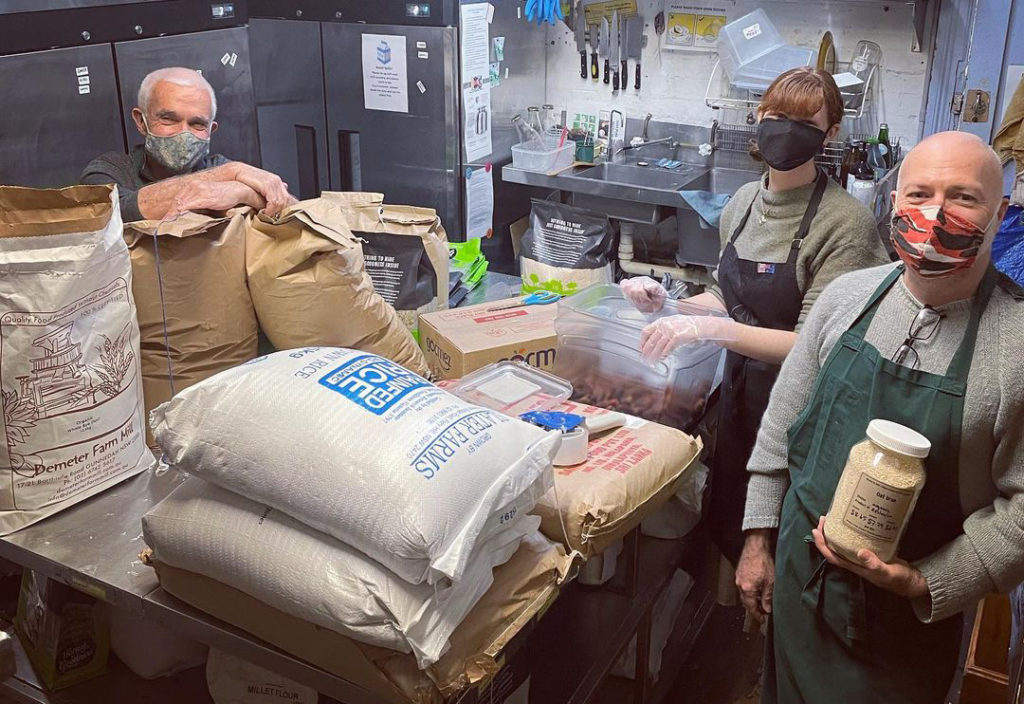
The future of food co-ops
While more people are embracing food co-ops, there are still challenges that these organisations face which could affect their future viability.
“It’s very competitive in the retail market,” Clark says. “There are similar-looking shops now which aren’t food co-ops but do the no-packaging thing. We’ve also got a Woolworths and an organic food shop opening nearby. So we’ve got more competition coming.”
Food co-ops also partly or wholly rely on volunteers to keep the operation running smoothly. And this can present its own set of difficulties.
“Volunteering is fraught with problems,” Clark says. “Sometimes, people just don’t turn up, or they call at the last minute to say they can’t come.”
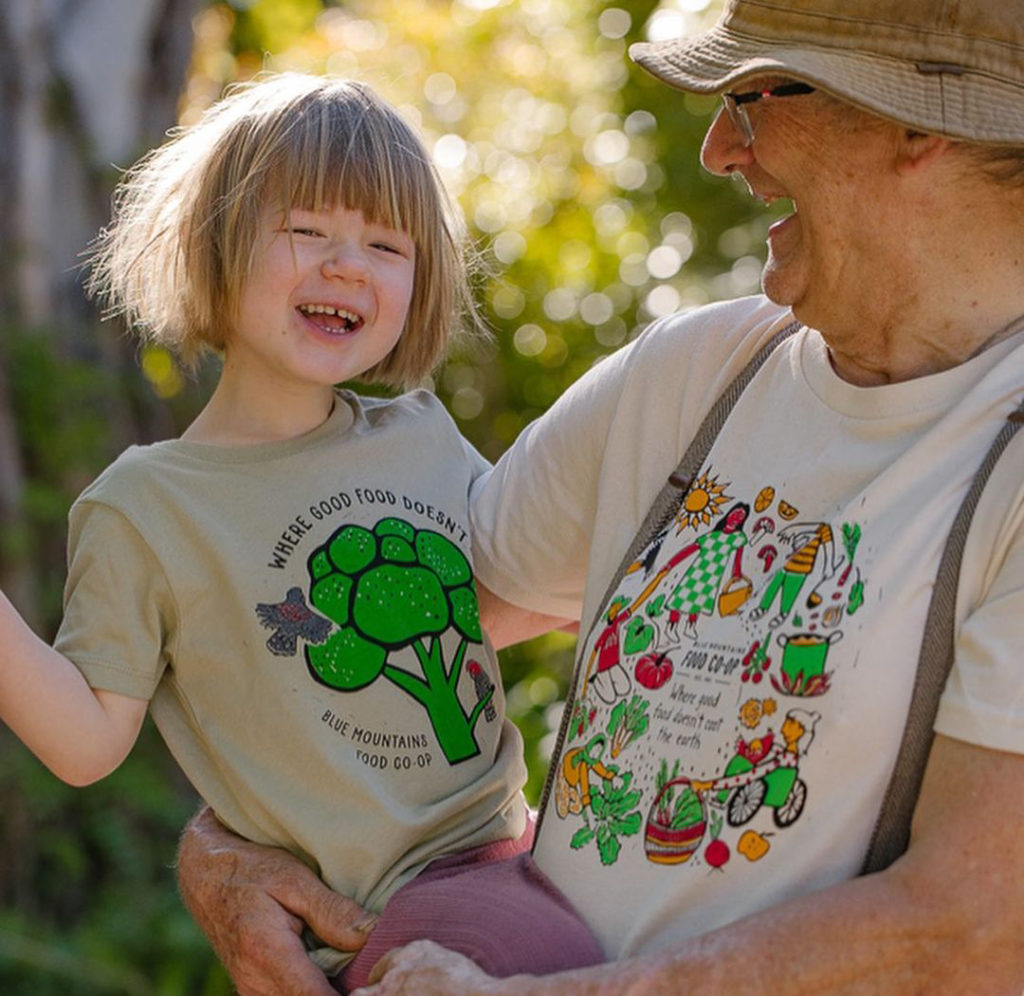
Building a better world
While there are challenges, ultimately, food co-ops offer consumers a better choice. One where you can feel a sense of belonging, where you can connect with like-minded people, and where you can buy the foods you want, in the quantities you choose, with the confidence that you’re helping to build a more sustainable food system.
“As a society, we can aim towards a more considered way of living,” Clark says. “I really think that encompasses a co-op. Also, for most people, food shopping is a fairly boring, soulless task. But with a food co-op, it can be the highlight of your week. It can become something that you learn from and enjoy and look forward to.
“It’s not always smooth sailing, but it is a way that anybody can feel in their heart that they’re contributing to their local community and to a better world.”
Want to start your own food co-op? Check out this guide from the Blue Mountains Food Co-op website. To find food co-ops near you, head to Local Harvest.


